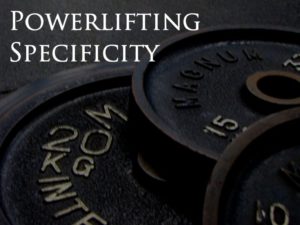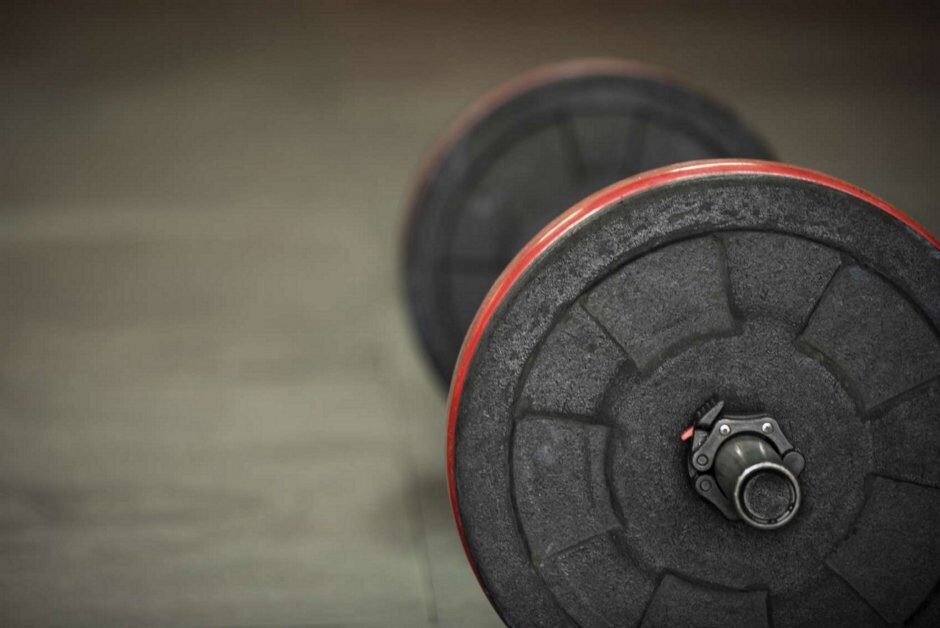Specificity in Powerlifting
 The first question that comes to mind is “What is Specificity”. Specificity is defined as the principle of training in which the sports training should be relevant and appropriate to the sport for which the individual is training in order to produce a training effect. In this case Powerlifting is the sport being trained
The first question that comes to mind is “What is Specificity”. Specificity is defined as the principle of training in which the sports training should be relevant and appropriate to the sport for which the individual is training in order to produce a training effect. In this case Powerlifting is the sport being trained
Why Does Specificity Matter?
Many lifters ignore the specificity principle when writing their own workout programs, even worse, there are lifter who decide on a whim what they are going to do during their totally unplanned training sessions. Being active is better than nothing but it is far from optimal if you what to see results from your training. The training must be specific not only to your sport, but to your individual abilities to increase your level of success.
The better you get at a sport, the more specific your training has to be.
Specifics of Powerlifting
If we were to be truly specific in training for competitive powerlifting then you might think that only training to competition lifts of Squat, Benchpress and Deadlift would be optimal and indeed some lifters advocate and train in this way. On the other end of the spectrum there are advocates of minimal training of the competition lifts but train with a wide array of assistance exercises eg The Westside Method or Advocates of the very popular Crossfit. When in reality for a RAW powerlifter the optimal specificity in training is in between the two extremes.
A good powerlifting program will revolve around training the Squat, Bench and Deadlift, this is the truly specific part of a training program, in addition to these lifts there needs to be included a range of specific assistance exercise which often mimic the movement patterns of the key lifts to strengthen specific weak points some of these exercise may include variations of the key lifts, for example front squats could be included to improve competition squats, close grip bench press to improve normal bench press and deficit deadlifts or rack pulls aimed at improving weak areas of the Deadlift.
Some non specific exercises must also be include within a training routine, not for directly improving each lift but for injury prevention and muscle balance. Participation in sport at a high level is never truly a “healthy” activity since it involves extreme performances but by including appropriate non specific exercises longevity in the sports and lower injury rates can be achieved. An example of this type of exercise would be to include a horizontal rowing movement like seated row to maintain muscle balance and shoulder health in contrast to the horizontal pushing movements of the exercises used to build a bigger bench press.
Next time an avid proponent of Crossfit tells you that you can become a powerlifter using crossfit you will understand that training Crossfit will make you good at Crossfit but you need to train Powerlifting to be a good powerlifter.
Are you located in the Gympie or Cooloola region ? I offer specific powerlifting coaching and can be contacted via the contact page on this site, or of you would like to just say hi! I can be found coaching and training at Gympie City Gym and I am always happy to answer questions.
[…] Specificity is key in powerlifting. In a nutshell, the law of specificity in powerlifting means your main focus should be on the lifts you want to make stronger: the squat, bench press, and deadlift. With that said, your lower body workouts should be focused around the back squat and deadlift. […]


[…] discussed in a previous article Specificity in powerlifting the key to becoming a good powerlifter is to specifically train the power lifts (Squat, Benchpress […]